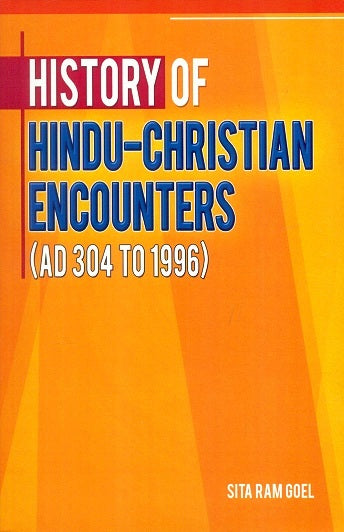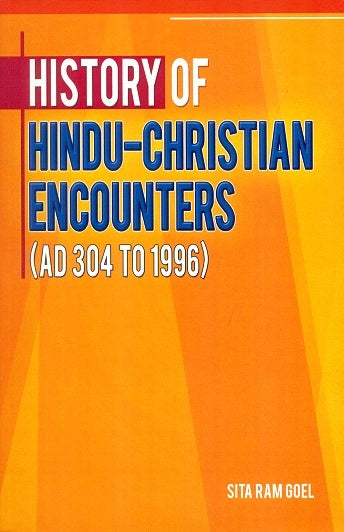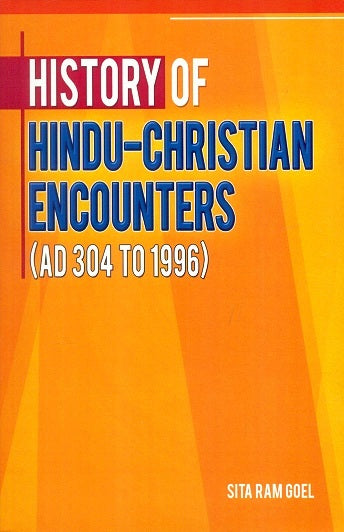History of Hindu-Christian encounters, AD 304 to 1996, 2nd rev. and enl. edition
History of Hindu-Christian encounters, AD 304 to 1996, 2nd rev. and enl. edition is backordered and will ship as soon as it is back in stock.
Couldn't load pickup availability
Genuine Products Guarantee
Genuine Products Guarantee
We guarantee 100% genuine products, and if proven otherwise, we will compensate you with 10 times the product's cost.
Delivery and Shipping
Delivery and Shipping
Products are generally ready for dispatch within 1 day and typically reach you in 3 to 5 days.
Book Details
-
Publisher: ADITYA PRAKASHAN Indological Publishers & Booksellers
-
ISBN 13: 9788185990354
-
ISBN 10: 8185990352
-
Edition: 2018
-
Year: 2018
-
Language: English
-
Subject(s): Religion, Voice of India
About the Book
This book critically examines the dogma of Christianity from the perspective of Hindu thought and history. The author argues that for centuries, Hindu intellectuals, from the seventeenth-century Pandits of Tamil Nadu to Mahatma Gandhi, have tried to challenge and debunk Christian teachings, yet the Christian theologians and missionaries have remained indifferent, as their beliefs were never meant for debate or proof. The book highlights the central paradox of Christianity: the unprovable claim that a Jewish man crucified in 33 AD atoned for the sins of humanity and that only those who accept him as savior will attain salvation, while others face eternal damnation.
The author argues that Christianity's dogma has always been a tool of imperialism rather than a religion based on spiritual teachings. The book stresses that Hindus must recognize the real intentions behind Christian missionary work, which aims to undermine Hindu society and culture. The author warns against viewing the encounter between Hinduism and Christianity as a dialogue between two religions, positing instead that it is a battle between two completely opposed worldviews. The work draws on the teachings of the Gita and contrasts the Vedic tradition of peace and coexistence with the Biblical tradition’s history of violent conflict.





